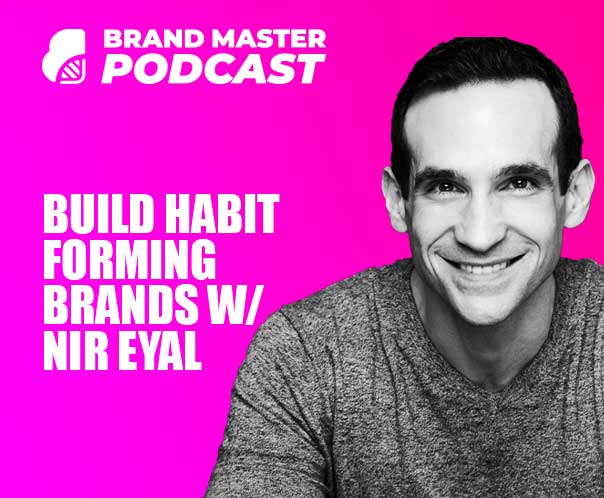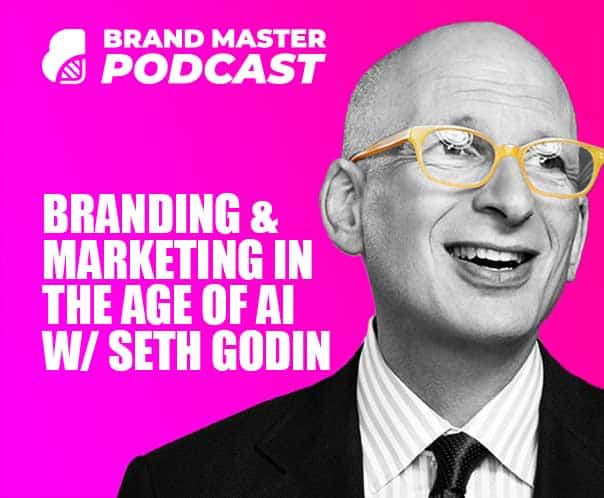It’s a fair assumption that people buy the best products and services on the market every time.
And although quality (Along with price and convenience) are important factors, there’s one factor that applies more consistently to all consumers.
That factor, is Brand Relevance.
While individual factors might influence different market segments in different situations at different times…
Brand relevance influences almost all consumers in all situations at all times.
Now, brand relevance might sound like another marketing buzzword.
Brand relevance isn’t just the key to creating a customer-obsessed brand that your target audience can’t get enough of…
It’s the difference between obscurity and dominance.
What is Brand Relevance?

Brand relevance is how a brand remains obvious and meaningful to its target audience over time.
It’s the secret sauce that keeps the customers returning, creating an emotional connection with the brand. It’s not about being the biggest or having the slickest marketing campaign.
No, it’s about understanding your customers’ pain points, focusing on their needs, and providing solutions they value.
Why is Brand Relevance important?

Now that we’ve got the basics down, let’s dive into why brand relevance is important.
Well, simply put, a relevant brand creates a significant impact on the audience’s perception of the brand’s value.
Relevant brands can charge a higher price and still maintain their preferred brand status.
How’s that possible?
Well, it’s because these brands meet customer expectations consistently and adapt with changing times.
So, if you’re aiming for your brand’s long-term success, maintaining brand relevance should be high on your list.
PRO Brand Strategy BluePrint
Build Brands Like A Pro Brand Strategist
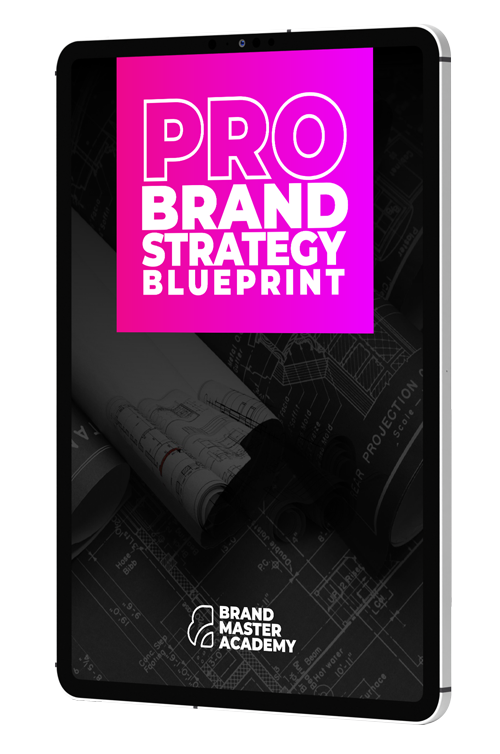
The Five Principles of Brand Relevance

While brand relevance might seem like an abstract concept, it is built on four fundamental principles that every business should strive to incorporate into its brand strategy.
Let’s dig into them!
Customer-Centricity

Putting customers at the heart of your business is key to maintain brand relevance. Brands need to understand their customer segment deeply and strive to meet customer expectations at every point of the customer journey.
Always remember, a customer-obsessed brand is a relevant brand.
Explore Brand Strategy
Programs & Tools
Focus on Experience

Successful brands know that creating high-quality customer experiences goes a long way in maintaining relevance.
They understand that it’s not just about the product or service they sell; it’s about the whole experience the customer gets when interacting with the brand.
It’s about making customers feel valued and heard.
Differentiation

For a brand to stay relevant, it needs to stand out from the crowd.
Differentiating your brand from competitors is vital.
How you do it, though, depends on the insights you have about your target audience and your unique business goals.
Alignment
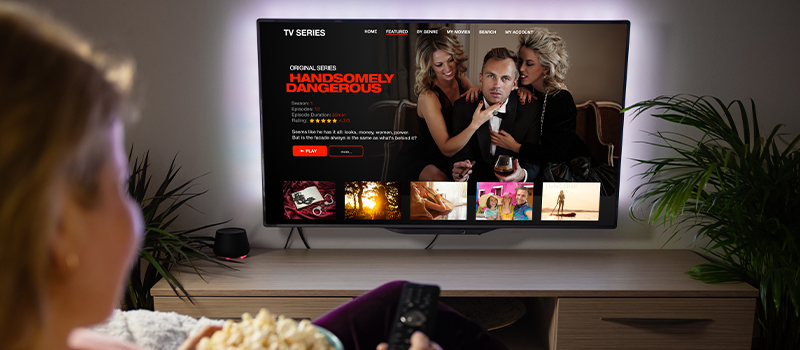
What makes your brand more relevant to your audience? The more alignment you have to your audeince, the more relevant you are.
Maybe the founder once walked the same path as the audience. Maybe your background or heritage speaks more directly to a core desire. Or maybe your personality evokes the inner child of your market segment.
Being more aligned to your audience than the competition is powerful and influential in the buying decision.
Innovation and Engagement

A successful brand doesn’t rest on its laurels.
To stay relevant, brands need to innovate, continuously improving their products or services to keep up with customer expectations and new trends.
Additionally, brands need to engage with their customers regularly, ensuring they remain connected and engaged.
5 Examples of Brand Relevance
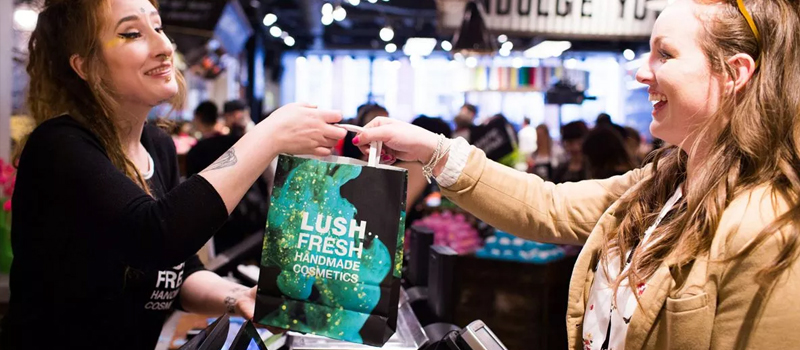
In order to better understand brand relevance and the impact it has on consumers, let’s take a look at some of the most relevant… brand relevance examples.
Lush Cosmetics

Lush Cosmetics emerged as a game-changer in the beauty industry, with its fresh, hand-made, cruelty-free products speaking volumes to environmentally conscious consumers.
Its enduring appeal lies not just in these ethical values, but also in its unwavering commitment to a transparent supply chain, striking a chord with its audience’s desires.
Spotify

Then there’s Spotify, the music streaming titan that not only grasped the seismic shift from CDs to digital, but also tailored its offerings to reflect the personalized experiences its users craved.
By pioneering features like user-specific playlists and integrating social connections, it has continually reinvented itself to mirror the evolving music landscape.
Trader Joe’s

You wouldn’t usually associate ‘playful’ with a grocery store, but Trader Joe’s begs to differ.
This quirky retailer turned the grocery shopping experience on its head, introducing gourmet yet affordable foods that continually delight its customers.
The playful product descriptions, coupled with the distinctive in-store branding, inject a sense of adventure and discovery, keeping shoppers coming back for more.
Duolingo

Duolingo, a shining example of tapping into the zeitgeist, understood the hunger for a more convenient, enjoyable way of learning languages.
With its gamified approach, learning has never been more enticing, showing how well the brand resonates with the changing dynamics of education.
LEGO

Remember the joy of piecing together a LEGO set?
This timeless brand understands the power of nostalgia, never straying far from its core – celebrating creativity and learning.
Despite the digital revolution, LEGO has managed to stay relevant, a testament to the universality of its ethos, showing that the joy of creation can bridge generations.
Rules of Brand Relevance

Following certain rules can help brands stay relevant in a fast-paced world. These rules are key to a brand’s long-term success.
Align decisions with your core values
The decisions your brand makes should always align with its core values. This helps create an authentic image that customers can trust and relate to on an emotional level.
Tell An Authentic Story

Storytelling is a powerful way for brands to connect with their audience on an emotional level.
An authentic story helps to make your brand personally relevant to your customers.
Sustain The Connection

Just creating an emotional connection isn’t enough.
Brands need to work consistently to sustain this connection over time. Email automation is just one of many ways you can gradually build customer relationship and build the connection over time.
Building Emotional Connections to Enhance Brand Relevance

Emotional connections are the ties that bind consumers to brands.
They go beyond a simple transactional relationship and foster a deep, emotional bond.
They make customers feel like they are part of the brand’s story, creating a sense of belonging that’s hard to break.
Building these emotional connections is essential to enhance brand relevance.
Brand Relevance in the Age of Social Media

With the advent of social media, brands have more opportunities than ever to connect with their audience and maintain relevance.
By creating engaging content and fostering online communities, brands can successfully connect with their audience and remain top-of-mind.
Brand Relevance and the Entrepreneurial Mindset
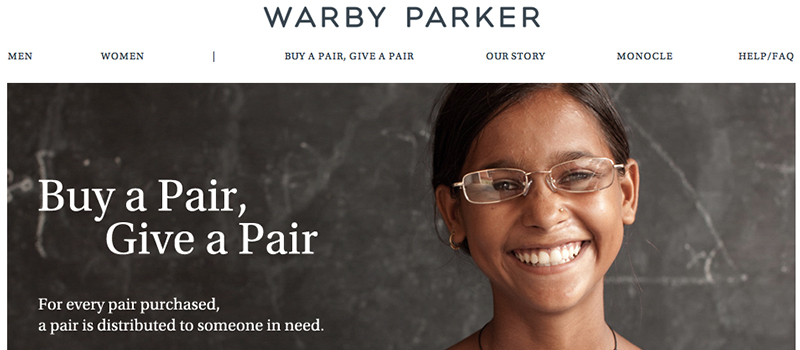
Entrepreneurs have a unique opportunity to build brand relevance from the ground up.
By focusing on creating a product or service that meets a perceived need in the market, entrepreneurs can create a brand that is instantly relevant to their target audience.
Brand Relevance Index (BRI): A Valuable Metric for Marketers

The Brand Relevance Index (BRI) is a metric that measures a brand’s relevance to its customers.
It’s considered the most reliable indicator of a brand’s ability to remain relevant in the market.
Marketers can use this index to measure their brand’s performance and make necessary adjustments to their strategy.
Brand Relevance and the Challenge of Differentiation

Differentiation is a challenge that many brands face when trying to maintain relevance. With so many businesses vying for the attention of consumers, it can be tough to stand out.
However, by offering unique products or services and creating a strong brand identity, brands can successfully differentiate themselves and remain relevant.
Creating Brand Relevance through Podcasts

Podcasts are a popular medium for brands to create relevant content and connect with their audience.
By creating content that resonates with their target audience, brands can enhance their relevance and foster a strong connection with their listeners.
Relevant Brands are Successful Brands
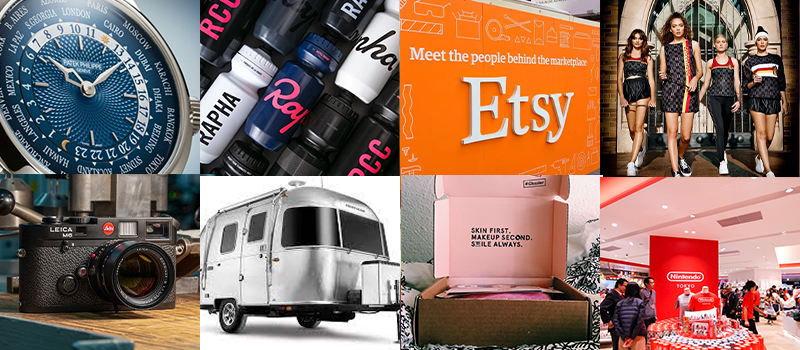
At the end of the day, a brand’s success is directly tied to its relevance.
Brands that can effectively anticipate and respond to their audience’s needs, engage their customers, and differentiate themselves in the market are the ones that stay relevant and successful in the long term.
Over To You
In a world where customer expectations are constantly evolving, maintaining brand relevance is no longer a choice but a necessity.
It’s the pulse that keeps a brand alive and thriving. So, go ahead, put your customers at the center of your world, create exceptional experiences, differentiate, innovate, and most importantly, stay relentless in your pursuit of relevance.
After all, a relevant brand is a successful brand.
FAQs
1. What is brand relevance?
Brand relevance is the degree to which a brand resonates with its target audience’s needs, desires, and preferences.
2. Why is brand relevance important?
Brand relevance is important as it leads to deeper customer loyalty, improved customer experience, and stronger brand equity.
3. What are some examples of relevant brands?
Some examples of relevant brands include Amazon, Starbucks, Apple, Luminary, and Prophet.
4. How can a brand maintain its relevance?
A brand can maintain its relevance by being customer-centric, focusing on experience, differentiating, and consistently innovating and engaging with its audience.
5. What happens when a brand loses its relevance?
When a brand loses its relevance, it risks becoming obsolete, losing its market share, and fading from the customers’ memory. It may also see a decrease in customer loyalty and brand equity.
On-Demand Digital Program
Brand Master Secrets
Make the transition from hired-gun to highly valued brand strategist in less than 30 days. The systems, frameworks and tools inside this comprehensive program are all you need to level up.




